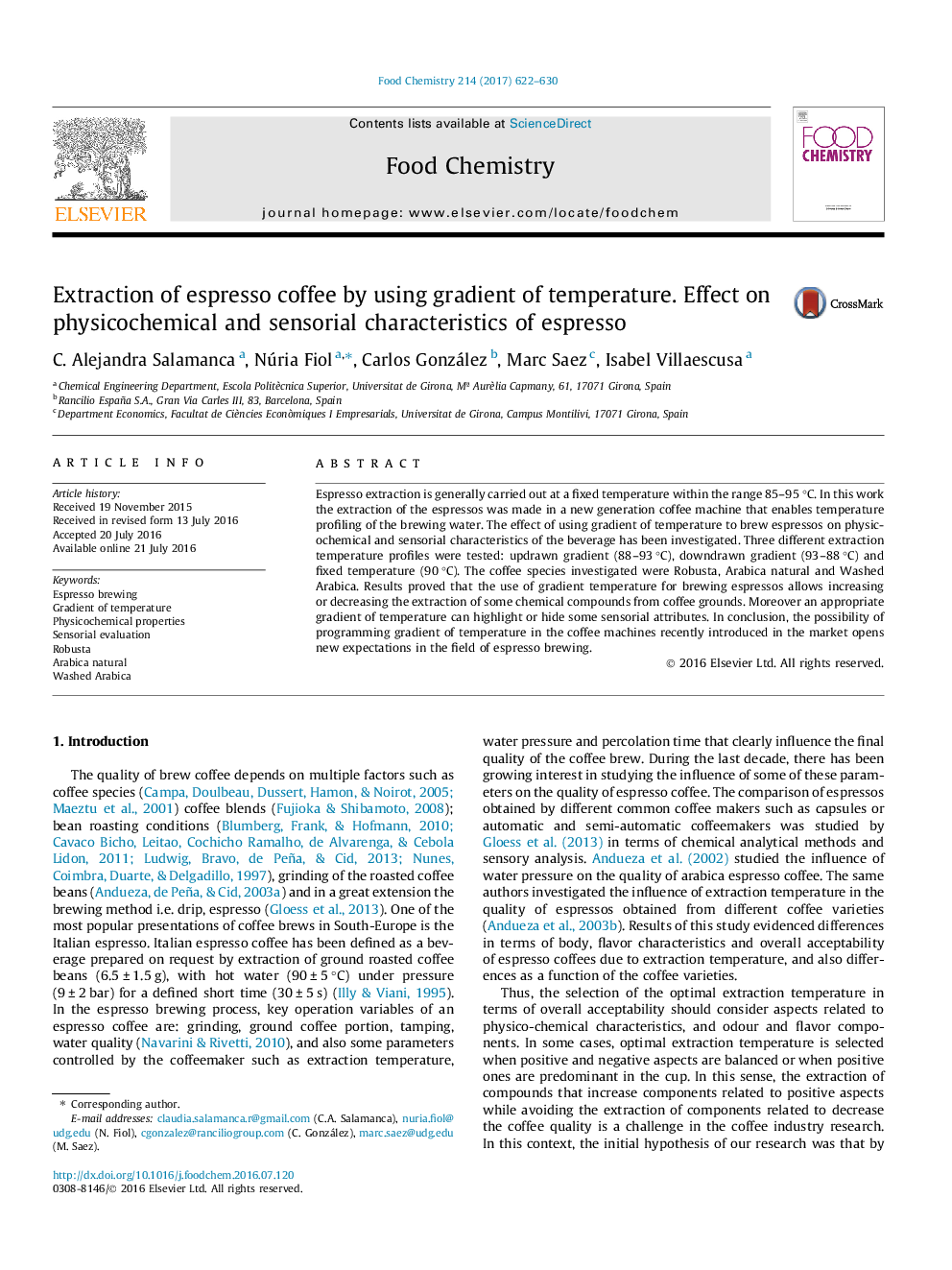| Article ID | Journal | Published Year | Pages | File Type |
|---|---|---|---|---|
| 7587289 | Food Chemistry | 2017 | 9 Pages |
Abstract
Espresso extraction is generally carried out at a fixed temperature within the range 85-95 °C. In this work the extraction of the espressos was made in a new generation coffee machine that enables temperature profiling of the brewing water. The effect of using gradient of temperature to brew espressos on physicochemical and sensorial characteristics of the beverage has been investigated. Three different extraction temperature profiles were tested: updrawn gradient (88-93 °C), downdrawn gradient (93-88 °C) and fixed temperature (90 °C). The coffee species investigated were Robusta, Arabica natural and Washed Arabica. Results proved that the use of gradient temperature for brewing espressos allows increasing or decreasing the extraction of some chemical compounds from coffee grounds. Moreover an appropriate gradient of temperature can highlight or hide some sensorial attributes. In conclusion, the possibility of programming gradient of temperature in the coffee machines recently introduced in the market opens new expectations in the field of espresso brewing.
Related Topics
Physical Sciences and Engineering
Chemistry
Analytical Chemistry
Authors
C. Alejandra Salamanca, Núria Fiol, Carlos González, Marc Saez, Isabel Villaescusa,
